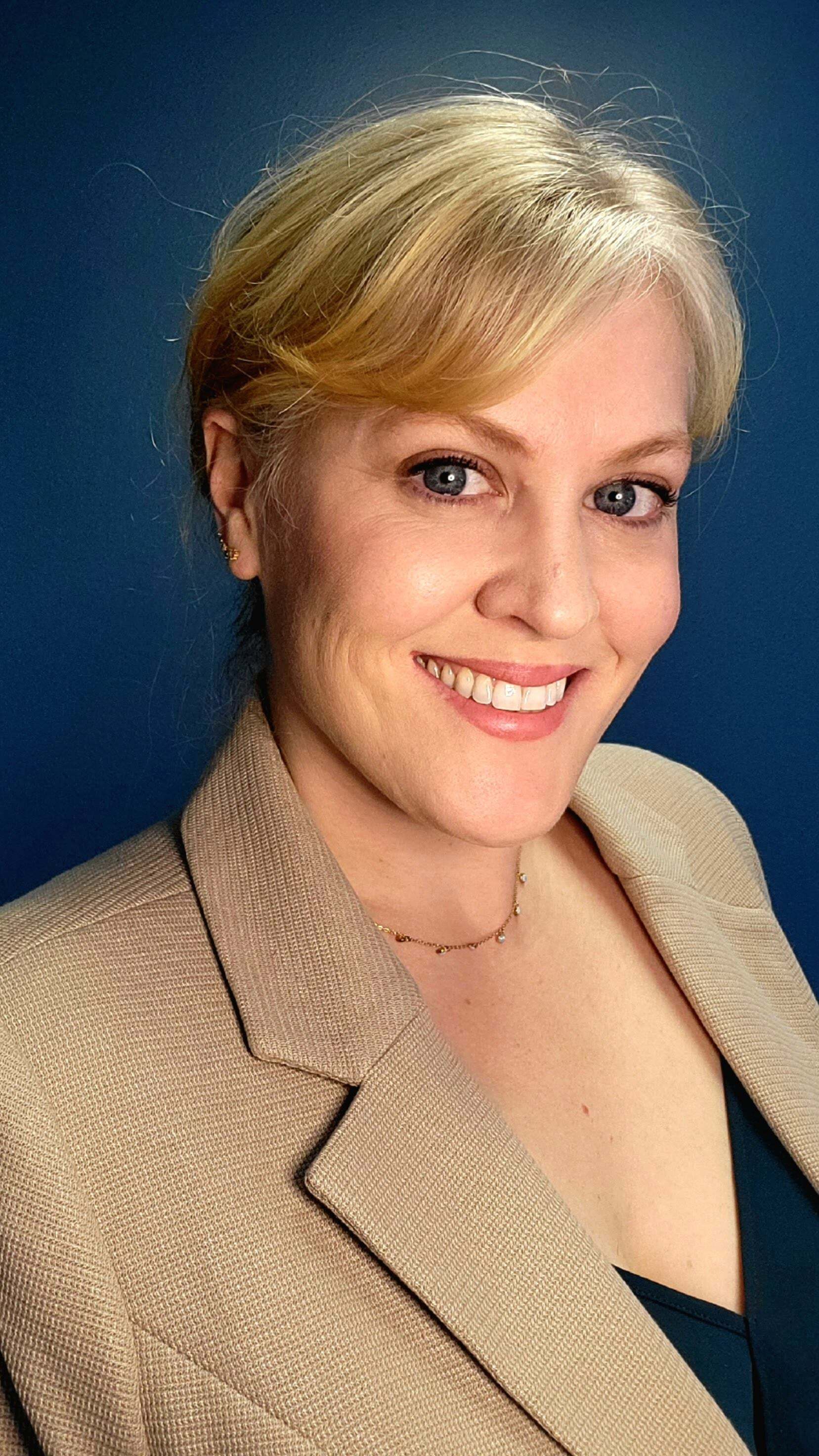
Charlotte Beard, PhD
Director, MS in Psychology
Assistant Professor
Contact
Email: cbeard@paloaltou.edu
Biography
Dr. Beard is a clinical psychology leader specialized in the intersection between technology and psychology. She has experience collaborating with clinical and research teams in leadership positions on subjects such as digital behavioral health design, mental health ethics and research, and protocol creation and management. Her research at PAU focuses on risks and benefits of gaming, including Internet gaming disorder and the therapeutic applications of games. Dr. Beard's research interests extend to psychological applied methods, and she currently instructs our MS students in Research Methods and Statistics I, II, and III.
Education
- BA, Psychology - University of California, Irvine
- MS, Clinical Psychology - Palo Alto University
- PhD, Clinical Psychology - Palo Alto University
Areas of Expertise
Internet Gaming Disorder, Clinical Psychology, Human-Computer Interactions, Therapeutic Application of Games, Neuropsychology
Publications
- Beard, C. L., & Wickham, R. E. (2016). Gaming-contingent self-worth, gaming motivation, and Internet Gaming Disorder. Computers in Human Behavior, 61, 507-515.
- Beard, C.L., Haas, A.L., Wickham, R.E., & Stavropoulos, V. (2017). Age of initiation and Internet gaming disorder: The role of self-esteem. Cyberpsychology, Behavior, and Social Networking, 20 (6), 397-401.
- Beard, C.L., Schmitz, J., Soder, H.E., Suchting, R., Yoon, J.H., Hasan, K.M., Narayana, P.A., Moeller, F.G., Lane, S.D. (2019). Regional differences in white matter integrity in stimulant use disorders: A meta-analysis of diffusion tensor imaging studies. Drug and Alcohol Dependence, 201, 29-37.
- Stavropoulos, V., Beard, C.L., Anderson, E.L., Kuss, D., & Griffiths, M.D., & Latifi, Q. (2019). A preliminary cross-cultural study of hikikomori and Internet gaming disorder: The moderating effect of gaming playing time and living with parents. Addictive Behavior Reports, 9.
- King, D. & Gaming Industry Response Consortium (2018). Comment on the global gaming industry’s statement on ICD-11 gaming disorder: A corporate strategy to disregard harm and deflect social responsibility? Addiction. doi:10.111/add.14388
- Reavis, J., & Beard, C.L. (2018) Behavioral addictions and the emergence of Internet Gaming Disorder. California Psychologist, 51(1), 22-25.
- Beard, C.L., Haas, A.L., Wickham, R.E., & Stavropoulos, V. (2017). Age of initiation and Internet gaming disorder: The role of self-esteem. Cyberpsychology, Behavior, and Social Networking, 20 (6), 397-401.
- Bunge, E., Beard, C.L., Stephens, T., Leykin, Y., & Munoz, R. (2017). Mood management effects of a brief behavioral activation Internet intervention. Journal of Technology in Behavioral Science, 2 (3-4), 163-170.
- Beard, C. L., & Wickham, R. E. (2016). Gaming-contingent self-worth, gaming motivation, and Internet Gaming Disorder. Computers in Human Behavior, 61, 507-515.

